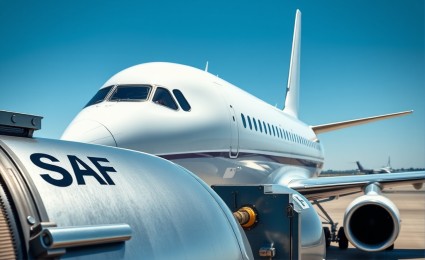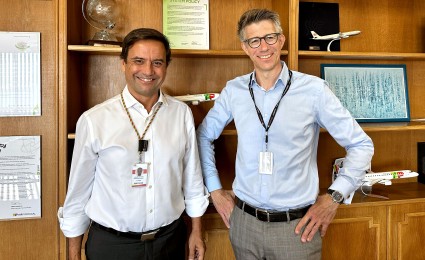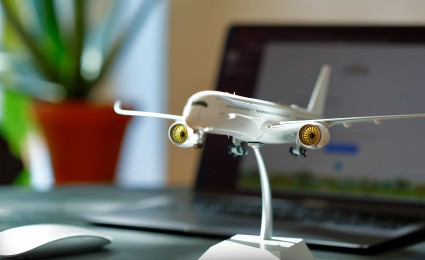

Transportation, Tourism and Logistics
Novel scenarios
If you're in the business of moving goods and people around the world, you’re facing pressure on several fronts. In response, we offer a twofold approach to your challenges: Nine topical solutions on the one hand, and industry specific know-how on the other.
This is an exciting time for the transportation industry. Globalization and trade are increasing, and novel mobility scenarios are evolving from new technologies and market entrants. At the same time, a growing focus on sustainability and environmental impact has placed new restrictions on how transportation players operate.
At Roland Berger, we understand that these fundamental changes have left numerous firms on shaky ground. Many are unsure how to balance short-term demands with long-term strategy. We help our customers to navigate complexity in the transportation industry. Our projects cover the entire value chain and each phase of the corporate life cycle — transformation, growth, and performance — as well as placing a special focus on digitalization. Our expertise covers the full range of mobility and logistics industries. We are a global team consulting the world's leading companies in the fields of airlines, airports, rail, public transport, urban mobility, shipping, ports, logistics, postal, travel and tourism.
Companies are facing complex challenges in profitably growing their topline. Brands need to deliver outstanding value in order to keep customers engaged. Ways of reaching customers are increasingly facetted and driven by a growing network of distribution partnerships. As a result, marketing costs are increasingly variable and dependent on a broad set of parameters. On top of this, demand is volatile and technology drives disruption of business models and the rise of new competitors.
We support companies in spotting commercial opportunities and managing risk in turbulent markets. Our solutions include tools for digital yield management, specifically considering variable cost of marketing, heuristics for dealing with uncertainty, and frameworks to evaluate and implement strategic partnerships. Most companies are stretched between transforming their business models while still delivering their targets for daily trading. Here, we have a definitive answer: A pragmatic and hands on approach, supported by smart analytics.
Airlines, airports, railway and postal operators and mobility providers all interact directly with their customers at physical touch points. Logistics and container shipping companies interact with their B2B customers via booking hotlines or tracking apps. They have to deal with commoditization and high transparency, while customer interaction is a key feature to differentiate products and services.
We have witnessed the transportation industry moving from "customer ownership" to the wider concept of "customer experience". How much value can a new service or product offer, and how can customer interaction be used to improve service as a product? We at Roland Berger are aware of how much the success of this concept is based on customer data - data that needs to be collected along the whole customer journey. We help to turn big data into smart data.
Many sectors in the transportation industry are subject to regulatory changes and liberalization. Disruption from new entrants, who reshape the business by introducing new business models or value propositions to their customers, is also a sign of the times. As a consequence, incumbents, in particular, are faced with a unique triple challenge: Increase efficiency, while at the same time make their offer more attractive and identify new markets to compensate for the loss of domestic market shares.
We study the impact of change, deal with communication and stakeholder management, and support our clients when it comes to reshaping their industry. We provide full support for companies when it comes to the execution of the corresponding strategic initiatives and programs.
New mobility and urban logistics business models are changing our cities as we know them. With the help of new innovations, you are now able to pick up a car anywhere in many cities and drop it off at your destination. But this is only just the beginning, autonomous technology is closer than many realize. The real revolution is yet to come.
We are working extensively on the most innovative and strategic projects in the industry concerning mobility, autonomous vehicles and logistics concepts. We help our clients to build customer-centric solutions that put them on the map of new mobility and urban logistics.
The mass arrival of robots is no longer a question. But how soon will it happen? And how do we best prepare for it? Robotic solutions have developed at a great pace since the giants of the internet made them the spearhead of their expansion plans. Robotization differs from mechanization (or automation), as it provides a flexible and reconfigurable solution which can be integrated seamlessly into existing infrastructures with human operators.
We support our clients to manage a smart transition to robotization. We encourage logisticians of all industries to revamp their business models on the basis of this new reality.
Industrial assets remain a key element in transportation markets. The challenges are classical, including in particular financing, maintenance and optimization of utilization. However, it is critical for companies to apply new technologies and adjust partnership models to stay ahead.
We support our clients in making sure their assets translate into a competitive edge advantage in turbulent transportation markets.
Arguing about the impact of digitalization is as necessary as bringing sand to the beach. Whereas start-ups are developing new business models free of legacy restrictions, established players both want and should leverage given capabilities and competences to deploy solutions that make a difference.
We support our clients throughout the entire transformation by formulating a digital vision and corresponding value proposition. Thereby, we bridge the gaps between the traditional and digital business world.
In the current competitive business environment, every mature company has been undergoing performance enhancement initiatives. Given the dynamics of our markets, striving for more efficiency is a permanent task.
To align initiatives to corporate targets, mobilize troops and ensure that the effects can be measures on the profit and loss statement, we support our clients on all relevant issues, i.e. short-term revenue growth, comprehensive cost-savings, re-alignment of investment programs, structural changes, and communication and overall program management.
There are several main drivers of the transportation industry. These include the need to specialize, ambitious efficiency goals, consolidation and merging to extend both reach and scope. These are the consequences of globalization and sector reforms, often triggered by redundant capacity.
We support our clients throughout the entire merger process, by delivering pre-merger studies and due diligences, negotiation support on deal making and on the merger integration itself. Throughout the process we partner case-specifically with lawyers, M&A firms, communication agencies and other experts.
The aviation industry of today bears little resemblance to that of decades past. Competition within airlines has intensified, blurring the lines between legacy carriers and low-cost carriers, necessitating a transformation to ensure survival. Airports , too, have undergone significant shifts in their business models, evolving into multifaceted entities encompassing retail, real estate, and IT services, in addition to serving as airline hubs. Sustainability has emerged as a pivotal concern, poised to shape the future of aviation. Urban and regional air mobility is on the rise. The MRO (Maintenance, Repair, and Overhaul) sector, whether integrated within airlines or operating independently, is poised for dramatic transformation in the coming years.
Changes in OEM (Original Equipment Manufacturer) business models, especially among engine manufacturers, along with the introduction of modern aircraft and challenges related to skilled personnel and overhaul capacity present unprecedented opportunities for industry players. Suppliers across various sectors, such as IT providers, navigation services, and ground handlers, and aerospace OEM face distinct challenges, including a shortage of qualified personnel, emerging competitors, diminishing monopolies, and evolving IT infrastructure. The aviation industry stands on the cusp of a new era, with transformational processes weaving through every segment.
Closely intertwined with the global economic and trade environment, logistics has become the backbone of global supply chains. We understand the tendency towards shorter contracts, and we know how to tackle uncertainty about the future of standard demand in a digital economy.
With our global perspective and experience, we advise with a strategic focus on value-adding market segments in light of two trends. These include the transition from commodity services toward specific industries requiring specialized logistics, and a move from B2B toward B2C transactions. Keeping this in mind, we can help to optimize processes and networks, extending to growth, organization, and asset or business model reviews.
Postal incumbents need to respond to three major challenges: liberalization, decline in traditional mail volume, and regulatory pressure. While competition grows stiffer, e-substitution entails a decline in mail volumes or global stagnation, and regulation constrains postal price flexibility.
Diversification along the postal value chain around the world is just one way to deal with this challenging business environment; comprehensive cost reduction and performance improvement programs are further entrepreneurial solutions that we have tried and tested.
Competition in the rail industry has been increasing steadily due to both the opening of international markets and new entrants. With the competition intensifying, rail operators are faced with a unique double challenge: reducing costs, while at the same time making their offers more attractive. In addition, mobility providers have to deliver their services as an integral part of increasingly intermodal mobility as well as a smooth, seamless operation. For the rail industry, this means playing a new game.
Roland Berger is uniquely qualified to support our clients' repositioning goals. We help identify cost-cutting potential that won’t compromise safety, service, or your reputation.
As one of the key facilitators of international trade, the shipping and ports sector is particularly vulnerable to bumps in the world economy. Profitability has come under pressure — there are huge tasks ahead in the shipping market, while ports face planning, development, and productivity challenges. What's more, regulations on port development differ significantly from one country to the next. Global port firms must navigate an extremely complex and often unpredictable system of restrictions.
We have a deep understanding of the shipping value chain. We are experts in the operation and management of port facilities and shipping companies, with detailed local knowledge in all parts of the world. We know how the regulatory environment differs in each country. From strategy audits to the implementation of cost saving initiatives, from acquisition strategy support to post-merger-integration, from market analyses to due diligence, we can develop a strategy that delivers both global perspective and local nuance.
The market is characterized by weak demand due to low freight and charter rates, as well as prevailing overcapacities, which result in lower order books, ship order cancellations, and underutilized shipyard facilities. Further restructuring, contraction, and consolidation can be expected in the shipbuilding landscape. Players now need to safeguard their market position by focusing on operational excellence and efficiency, or focusing on very specific niche segments.
We have been involved in shaping and advancing the shipbuilding industry since our company was founded, assisting in developing CEO-agendas with regard to growth strategies, market entry strategies, and business model reviews. We help our clients steer their companies safely through 'rough seas'.
More than 50 percent of hotel bookings are already made through digital channels — platforms are calling the shots in online sales and new providers are storming the market. The travel and tourism industry has been transformed by "disintermediation" and "re-intermediation". This means that tourism service providers are trying to approach their customers directly. At the same time, new and more dynamic modes of packaging and selling have been developed, partially replacing tour operators' business - a twofold paradox.
At Roland Berger, we have developed tourism strategies at national, regional, and local levels, and we know how to set up and implement growth strategies as well as initiate innovative business models. We have successfully advised the hospitality business, tour operators, travel agents, associations, and entertainment companies, and we invite clients to benefit from our unique transportation value proposition and a modern digital approach.
































_person_144.png)
_person_144.png)




_person_144.png)

_person_144.png)












_person_144.png)



